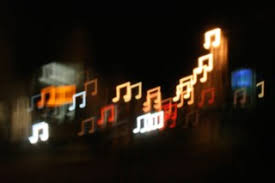Musical hallucinations in a case of bipolar disorder
DOI:
https://doi.org/10.25118/2763-9037.2024.v14.1297Keywords:
hallucinations, music, antipsychotic, bipolar disorder, manic-depressive psychosisAbstract
Introduction: Musical hallucinations represent a special form of complex auditory hallucinations, characterized by the false perception of musical tones, rhythms or melodies. The main pathologies associated with musical hallucinations are: chronic auditory abnormalities, use of medications; mental disorders and neurological diseases. Method: Case Report. CEP n. 81725024.9.0000.5263, Instituto de Psiquiatria da Universidade Federal do Rio de Janeiro, IPUB, UFRJ. Case presentation: We present the case of a 59-year-old patient with bipolar disorder for seventeen years who first presented with musical hallucinations only thirteen years after the onset of the illness. Later, however, this special form of hallucination became recurrent and began to be associated with each new affective episode that she would present. Discussion: Musical hallucinations are rarely found in bipolar disorder and in the present clinical case, with regard to musical hallucinations, there was a good therapeutic response, related to the use of an antipsychotic and behavioral measures. A peculiar aspect of the case was that, in depression, these hallucinations consisted of sad music, and in mania, of happy music.
Downloads
Metrics
References
Costa OPF, Dalcim ML, Smaira SI, Lovadini GB. Musical hallucination or musical obsession? A differential diagnosis between two cases. Dement Neuropsychol. 2024 Jun 24;18:e20230073. https://doi.org/10.1590/1980-5764-DN-2023-0073 - PMID:38933080 - PMCID:11206231
Zabalza-Estévez RJ. Alucinaciones musicales: la musica perpetua [Musical hallucinations: perpetual music]. Rev Neurol. 2014 Mar 1;58(5):207-12. Spanish. https://doi.org/10.33588/rn.5805.2013443 - PMID:24570359
Klut C, Xavier S, Graça J, Cardoso G. Musical Hallucinations and Schizophrenia: Case Report. Revista do Serviço de Psiquiatria do Hospital Professor Doutor Fernando Fonseca. 2011;9(2):60-67. https://doi.org/10.25752/psi.3273
Gordon AG. Drug-induced musical hallucinations. J Nerv Ment Dis. 1998 Oct;186(10):652-3. https://doi.org/10.1097/00005053-199810000-00010- PMID:9788643
Alvarez Perez P, Garcia-Antelo MJ, Rubio-Nazabal E. "Doctor, I Hear Music": A Brief Review About Musical Hallucinations. Open Neurol J. 2017 Feb 28;11:11-14. https://doi.org/10.2174/1874205X01711010011 - PMID:28567134 PMC5420178
Golden EC, Josephs KA. Minds on replay: musical hallucinations and their relationship to neurological disease. Brain. 2015 Dec;138(Pt 12):3793-802. https://doi.org/10.1093/brain/awv286 PMID:26446167
Evers S. Musical hallucinations. Curr Psychiatry Rep. 2006 Jun;8(3):205-10. https://doi.org/10.1007/s11920-006-0024-0 PMID:19817070
Hermesh H, Konas S, Shiloh R, Dar R, Marom S, Weizman A, Gross-Isseroff R. Musical hallucinations: prevalence in psychotic and nonpsychotic outpatients. J Clin Psychiatry. 2004 Feb;65(2):191-7. https://doi.org/10.4088/jcp.v65n0208 - PMID:15003072
Berrios GE. Musical hallucinations. A historical and clinical study. Br J Psychiatry. 1990 Feb;156:188-94. https://doi.org/10.1192/bjp.156.2.188 - PMID:2180526
Coebergh JA, Lauw RF, Bots R, Sommer IE, Blom JD. Musical hallucinations: review of treatment effects. Front Psychol. 2015 Jun 16;6:814. https://doi.org/10.3389/fpsyg.2015.00814
PMID: 26136708 - PMC4468361
Ferreira TF, Dehanov S, Figueiredo I, Santos NB. Musical hallucinations in a mixed episode - interaction between musicality and mood. Psychiatry Res. 2021 Jan;295:113633. https://doi.org/10.1016/j.psychres.2020.113633 PMID:33316729
Cheniaux E, Cruz T. Fogo & Cinzas: as incríveis histórias de bipolares famosos. São Paulo: Editora dos Editores; 2023. https://doi.org/10.25118/2763-9037.2024.v14.1210
Colon-Rivera HA, Oldham MA. The mind with a radio of its own: a case report and review of the literature on the treatment of musical hallucinations. Gen Hosp Psychiatry. 2014 Mar-Apr;36(2):220-4. https://doi.org/10.1016/j.genhosppsych.2013.10.021 - PMID:24359763
Vitorovic D, Biller J. Musical hallucinations and forgotten tunes - case report and brief literature review. Front Neurol. 2013 Aug 8;4:109. https://doi.org/10.3389/fneur.2013.00109
PMID:23964264 - PMC3737457
Al-Awad FA. The phenomenon of musical hallucinations: an updated review. Electron J Gen Med. 2023;20(6):em533. https://doi.org/10.29333/ejgm/13522

Published
How to Cite
Issue
Section
License
Copyright (c) 2024 Pedro Fernandes Roma, Elie Cheniaux Junior

This work is licensed under a Creative Commons Attribution-NonCommercial 4.0 International License.
Debates em Psiquiatria allows the author (s) to keep their copyrights unrestricted. Allows the author (s) to retain their publication rights without restriction. Authors should ensure that the article is an original work without fabrication, fraud or plagiarism; does not infringe any copyright or right of ownership of any third party. Authors should also ensure that each one complies with the authorship requirements as recommended by the ICMJE and understand that if the article or part of it is flawed or fraudulent, each author shares responsibility.
Attribution-NonCommercial 4.0 International (CC BY-NC 4.0) - Debates em Psiquiatria is governed by the licencse CC-By-NC
You are free to:
- Share — copy and redistribute the material in any medium or format
- Adapt — remix, transform, and build upon the material
The licensor cannot revoke these freedoms as long as you follow the license terms. Under the following terms:
- Attribution — You must give appropriate credit, provide a link to the license, and indicate if changes were made. You may do so in any reasonable manner, but not in any way that suggests the licensor endorses you or your use.
- NonCommercial — You may not use the material for commercial purposes.
No additional restrictions — You may not apply legal terms or technological measures that legally restrict others from doing anything the license permits.





























